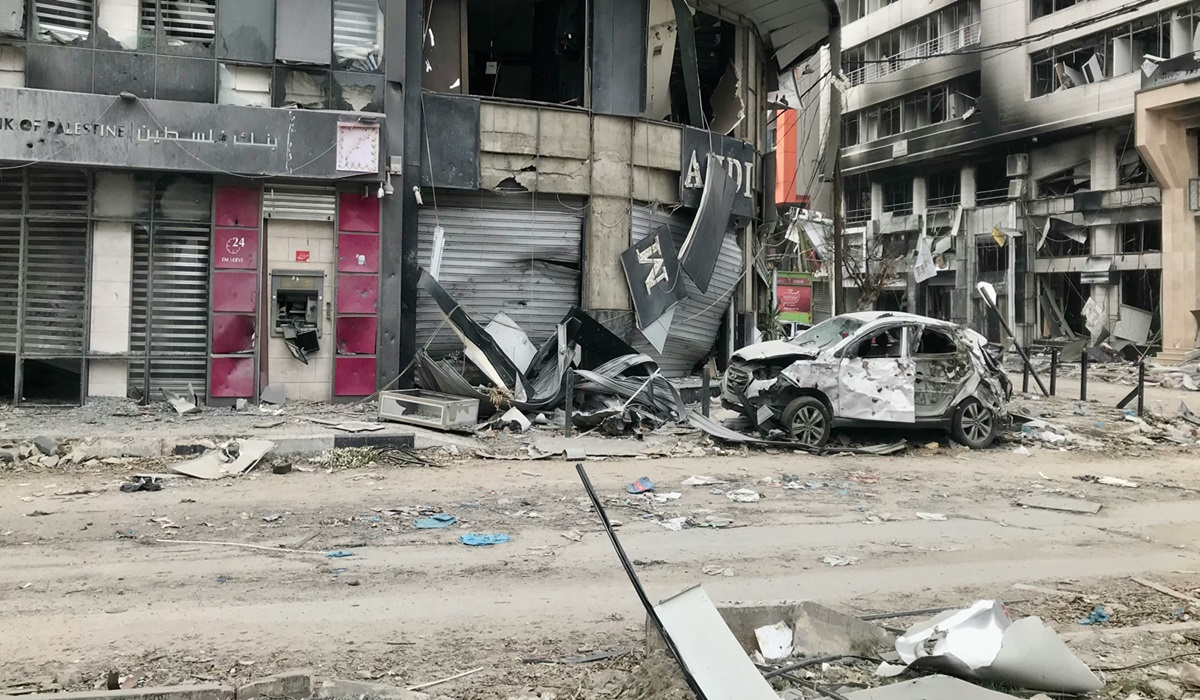Why Do We Keep Waging War Despite Knowing Its Cost?
- Kingston Bailey
- Middle East
- Trending
- June 6, 2024

Image Credit, Emad El Bayed
As the world continues to shiver in shock at the destruction in Gaza, Ukraine and throughout Africa, one cannot help but ask a painfully simple yet profound question: if history repeats itself, why do we still engage in wars when we know their inevitable outcomes—death, destruction, chaos, and, at best, a fleeting semblance of peace?
This question, deceptively straightforward, encapsulates the tragic cyclical nature of human history. Wars have been fought for millennia, with countless lives lost and civilizations brought to ruin. The patterns are strikingly consistent: conflicts arise from territorial disputes, resource competitions, ideological clashes, and power struggles. Despite technological advancements and increased global connectivity, the fundamental drivers of war remain unchanged.
Reflecting on the history of warfare reveals a grim repetition. The Peloponnesian War, the Hundred Years’ War, the Napoleonic Wars, the World Wars of the 20th century—all culminated in immense suffering and transient peace agreements that merely laid the groundwork for future conflicts. The Cold War’s nuclear brinkmanship, while avoiding direct large-scale conflict, perpetuated an era of global anxiety and regional proxy wars.
Modern conflicts, from the Middle East to Eastern Europe, continue this relentless pattern. The Syrian Civil War, the Russo-Ukrainian conflict, and numerous other regional disputes showcase the same tragic elements: civilian casualties, displacement, economic devastation, and the breakdown of social fabric. These wars highlight the glaring contradiction of human behavior—we continue to inflict collective suffering despite our comprehensive understanding of its futility.
The reasons behind this paradox are complex and multifaceted. Psychological and sociological theories suggest that human nature, driven by fear, greed, and a desire for power, plays a significant role. Political leaders often resort to war as a means of consolidating authority, diverting attention from domestic issues, or asserting dominance on the global stage. Nationalism and propaganda further inflame public sentiment, rallying populations behind causes that may not serve their best interests.
Moreover, the global arms industry, a multi-billion-dollar enterprise, thrives on conflict. The economic incentives to perpetuate war cannot be ignored, as powerful stakeholders benefit from continued hostilities.
Yet, amidst this bleak landscape, there are glimmers of hope. The establishment of international bodies like the United Nations, the proliferation of peacekeeping missions, and the global community’s increasing awareness of human rights issues signify a growing collective desire to break the cycle of violence. Diplomatic negotiations, economic sanctions, and conflict resolution strategies are being employed with varying degrees of success to avert war and promote stability.
Despite these efforts, the question remains: why do we still resort to war? Perhaps it is because we, as a species, have yet to fully internalize the lessons of history. The pursuit of peace requires more than treaties and resolutions; it demands a fundamental shift in how we address grievances, distribute resources, and manage power dynamics. It necessitates education, empathy, and an unwavering commitment to dialogue over destruction.
As we ponder this age-old question, it is imperative to remember the human cost of war. Behind every conflict are individuals whose lives are irrevocably altered, families torn apart, and communities devastated. The end result of war is not just a statistic but a profound human tragedy that echoes through generations.
In an era where we have the knowledge and means to prevent conflict, our greatest challenge lies in transcending our primal instincts and embracing a future where peace is not just an interlude between wars but a sustained reality. History may repeat itself, but it is within our power to change the script.








